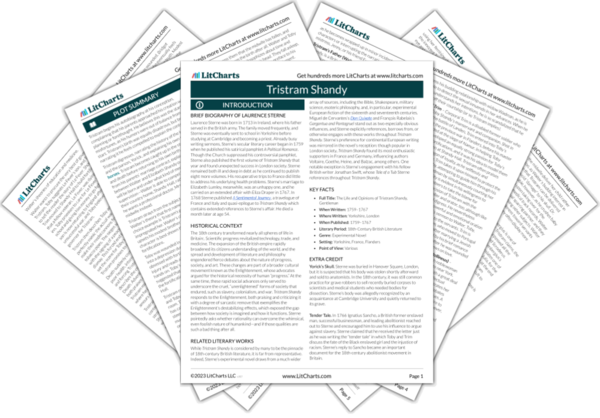The difference between Walter and Toby’s characters is underscored once more, as Toby shows his brother that he not offended by returning to precisely the subjective that prompted Walter’s offensive outburst in the first place. Dr. Slop’s dismissive attitude toward Peireskius, one of Toby’s intellectual heroes, reveals his own disagreeable character. Walter’s argument for the economic unviability of the sailing chariot is a satirical vulgarization of popular economic doctrines of the eighteenth century and their theories of wealth creation.
